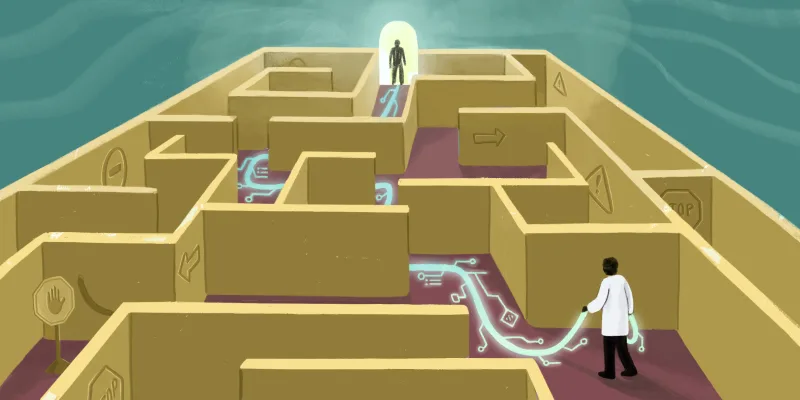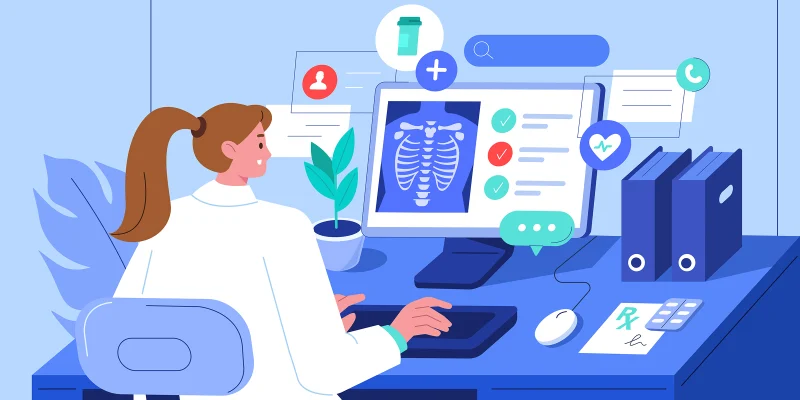 It is generally understood that becoming a doctor is an inherently stressful process. Many accept that psychological strain is simply part of the job. However, recent studies on physician and physician trainee burnout, depression, and suicide have shown us exactly how significant the psychological toll really is. The facts are glaring: 27 percent of medical students and 28 percent of medical residents suffering from depressive symptoms. After training, 42 percent of practicing physicians endorse burnout. A recent report found that physicians commit suicide more than twice as often as the general public. At this point, there can be little doubt that a major problem exists.
It is generally understood that becoming a doctor is an inherently stressful process. Many accept that psychological strain is simply part of the job. However, recent studies on physician and physician trainee burnout, depression, and suicide have shown us exactly how significant the psychological toll really is. The facts are glaring: 27 percent of medical students and 28 percent of medical residents suffering from depressive symptoms. After training, 42 percent of practicing physicians endorse burnout. A recent report found that physicians commit suicide more than twice as often as the general public. At this point, there can be little doubt that a major problem exists.
A push to improve given these types of unsettling statistics has led to development of “wellness programs” and “resiliency trainings” in medical schools, residencies, and post-residency programs. These initiatives strive to provide medical trainees and staff with tools for coping with the inherent stressors of the job. “Wellness” programs tend to encourage doctors to seek help when the going gets too rough and not push one’s psychological boundaries too far. “Resiliency” programs seek to improve providers’ ability to handle the stress of work. These concepts are well intentioned but fail to address the underlying problem.
Medical training takes place in a system where weakness is synonymous with defeat. Medical students are told to demonstrate interest by showing up early and staying late. Mental health and basic self care are routinely sacrificed so trainees can preserve an artificial image of endless enthusiasm for medicine. As doctors in training, we are conditioned to believe that the only way to succeed was to deny our basic human needs. A request to use the bathroom, get a snack, or make a phone call provided an opportunity for someone else to get ahead. These needs were seen as weakness, and represented personal failure. Having just completed my medical training, I can assure you these worrisome trends are alive and well.
“Wellness” programs focus on lowering stress in trainees, as well as on providing resources for those suffering from mental health issues. These programs would have us believe that we can admit some of our limitations (for example, being stressed or depressed) without suffering career repercussions. Despite this noble goal, the medical system as a whole continues to reward those who push through any and all obstacles, including untreated psychopathology. When commitment to the profession is consistently deemed to be more important than the need for self care, it’s hard to avoid seeing “wellness” messaging through cynical eyes.
“Resiliency” training represents an equally shortsighted paradigm. This concept operates on the idea that yes, medical training is stressful, but if we foster “resiliency” in our trainees and providers, they’ll be better suited to handle the challenges of the job. Superficially, this idea seems grounded in reason. But in application, the idea of a lack of “resiliency” places the blame for mental health problems on the trainee or provider. It assumes that mental health problems develop when someone isn’t “resilient” enough, transferring blame to the individual instead of to an outdated system. In essence, resiliency programs tell us not to worry about changing the environment in healthcare. Instead, it tells us, we should learn to cope.
If we seek to make real progress in improving the mental health of medical trainees and practicing physicians, we cannot continue to ignore the underlying, systemic issues that contribute to this pathology. True change will require that we look at the entire medical continuum and stop reinforcing the concept of the invincible, superhuman doctor. Medical students, medical residents, and practicing physicians are far too mortal to even pretend to live up to these myths.
Austin Perlmutter, MD, is an Internal Medicine physician based in Portland, Oregon. His current focuses are exploring methods of creating sustainable joy, health, and meaning in the modern world, as well as improving wellness for those in the medical field. He reports no conflicts of interest.
Illustration by Jennifer Bogartz







